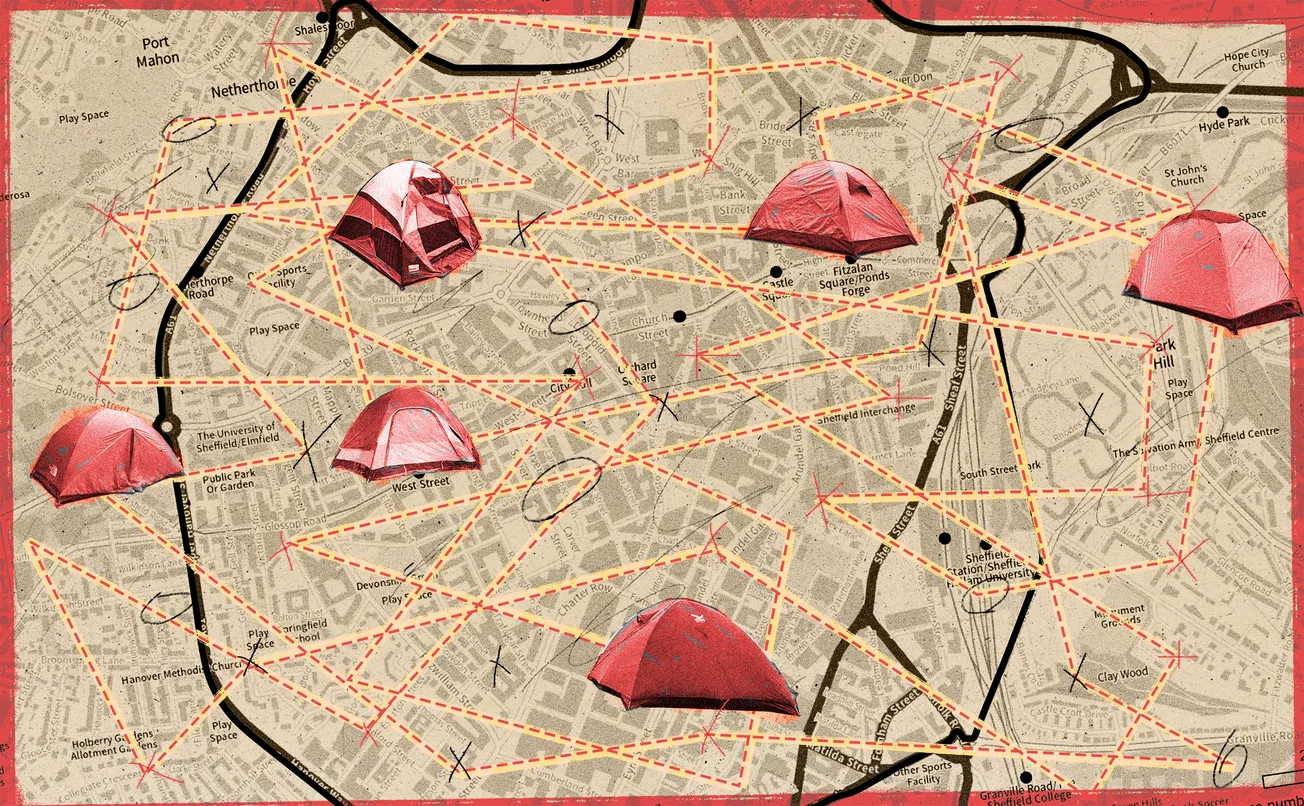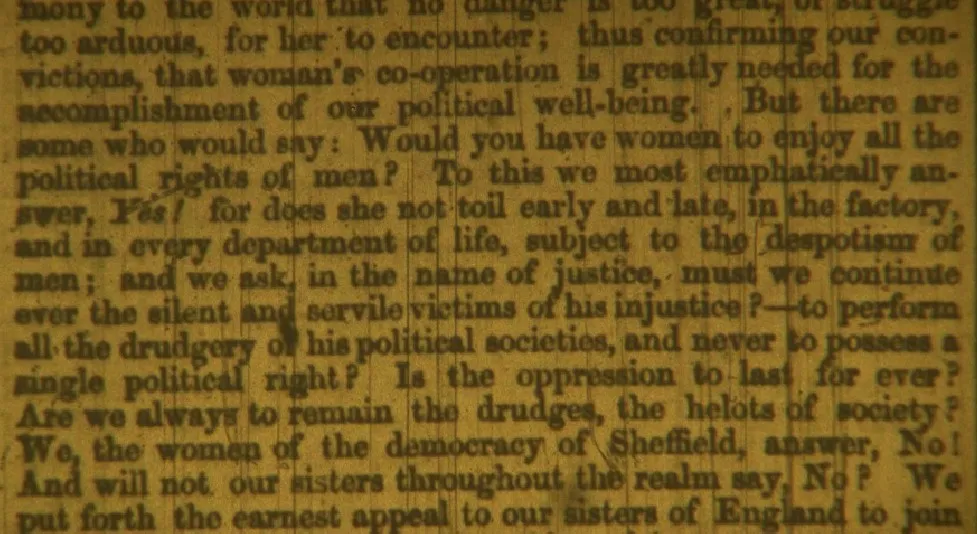Claire Mashford used to sit outside Sheffield railway station. Many of you will no doubt have seen her there. Over the last few years, the 47-year-old has become a fixture on the station forecourt, often seen poking her head out of a cheap dome tent purchased from Decathlon. People give her money and food or, like me, just say hello on their way past. But Claire’s not there anymore.
We’re chatting at her new spot, me sitting on the floor outside Claire’s tent and her wrapped up in a sleeping bag inside it. Last week, a group of police officers told her she had to move from her usual pitch due to Sheffield City Council’s new Public Space Protection Order (PSPO). Claire explains she was given almost no time to take down her tent and collect her things, and initially she didn’t have a clue where to go. She wandered around for a bit, eventually alighting on a new pitch at the Supertram stop at the rear of the station, just a few hundred yards away from her previous spot. It’s difficult to see what, if anything, has been improved.
Covering an area of Sheffield city centre within the inner ring road, the PSPO prohibits certain behaviours, including drinking alcohol in a way likely to cause antisocial behaviour or begging and loitering that is likely to cause harassment, alarm or distress. If someone is found to be in breach of the order, police can confiscate their alcohol and tell them to leave the PSPO area for a period of 24 hours. If they don’t comply, they can be fined or arrested. When the council enacted the legislation, they were at pains to stress that the order would be applied to all, and not just the homeless people, rough sleepers and beggars who live on the streets of the city centre. Claire accepts that she begs and drinks, but she disputes she is causing trouble. “I don’t cause distress, I just sit here,” she says.
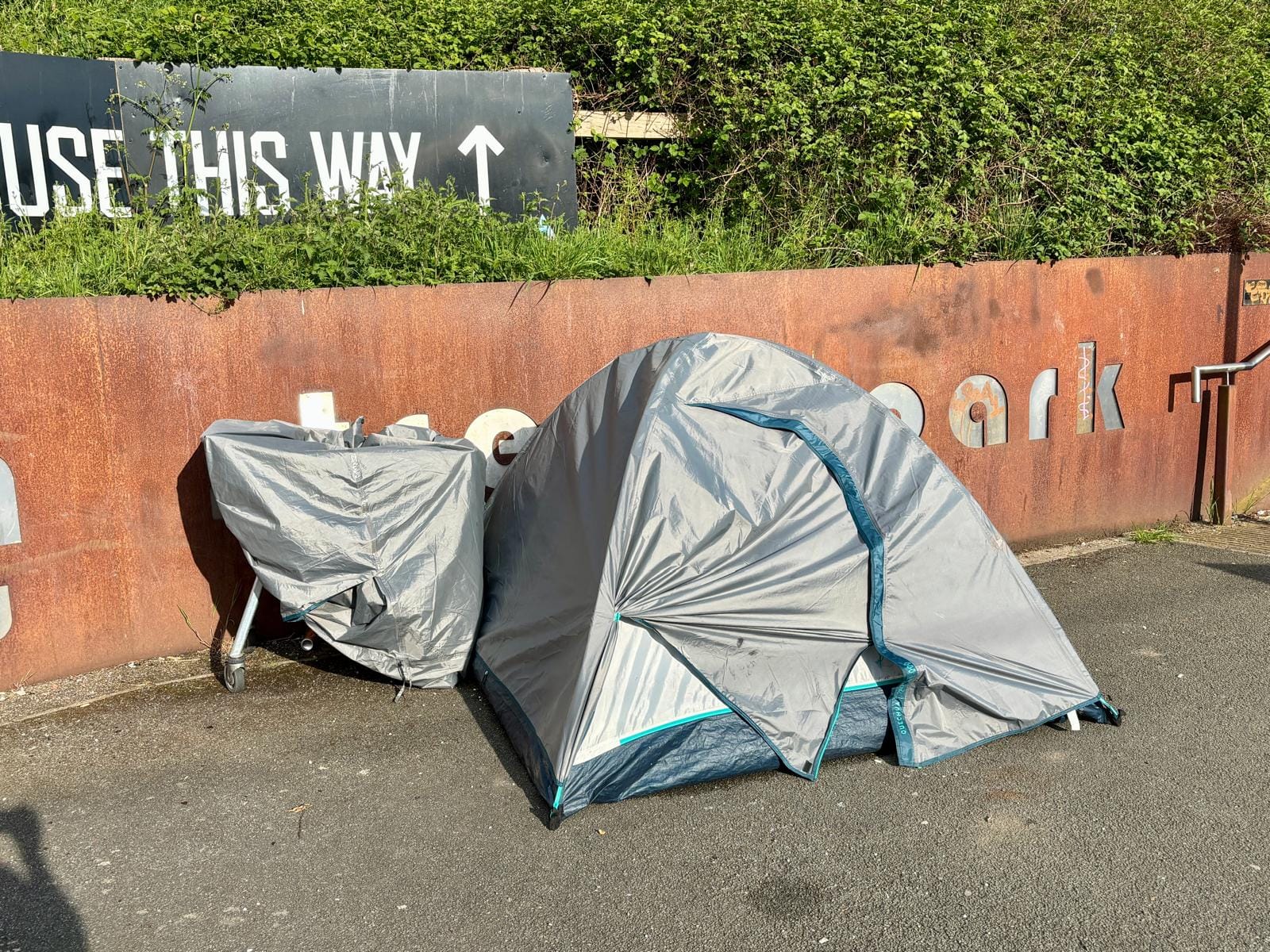
Originally from Lincoln, Claire has lived in Sheffield for almost 20 years. During most of that time, she’s been in and out of accommodation. As recently as last year, she was living in a hostel in Pitsmoor. Claire drinks but does not use hard drugs, and she found being surrounded by people using heroin and crack cocaine difficult to cope with. It’s hard to tell whether she left the accommodation of her own accord or was kicked out. Since she left the hostel, she’s been living on the streets, mainly outside the station, and has been relying on the thousands of people who walk through the forecourt for money, food and company. She says her repeated pleas to the council for fresh accommodation have gone unheeded. “It’s disgusting what they are doing to people,” she says. “Give us a home. I am as human as anyone else.”
Back at Claire's previous spot, commuters buzz in and out of the station. For my money, the station forecourt (or Sheaf Square to give it its official name) is one of the best public spaces in Sheffield. The stepped water fountains and sleek steel “Cutting Edge” sculpture make for a striking welcome for the tens of thousands of people who arrive in the city every day. In the bright April sunshine it gleams, a few dozen commuters sitting and standing around waiting for their connections. As well as commuters, the forecourt also often attracts people like Claire who believe the area is their best bet for earning money or getting food through begging. But there are no such people there today.
A staff member at the Motore Cafe says she’s known Claire since she started living outside the station full-time last year and says that station staff, security guards and shop workers have regularly complained about her presence there. The young woman acknowledges that Claire has caused trouble in the past, and has on occasion been aggressive, but says that over the last six months her behavior has been much better. She thinks Claire is being persecuted for living on the streets. Either way, she doesn't see how forcing her to move just a few hundred yards will help the situation. “The PSPO is bullshit,” she tells me. “It’s just moving people from one place to another. It’s not helping her with her problems.”
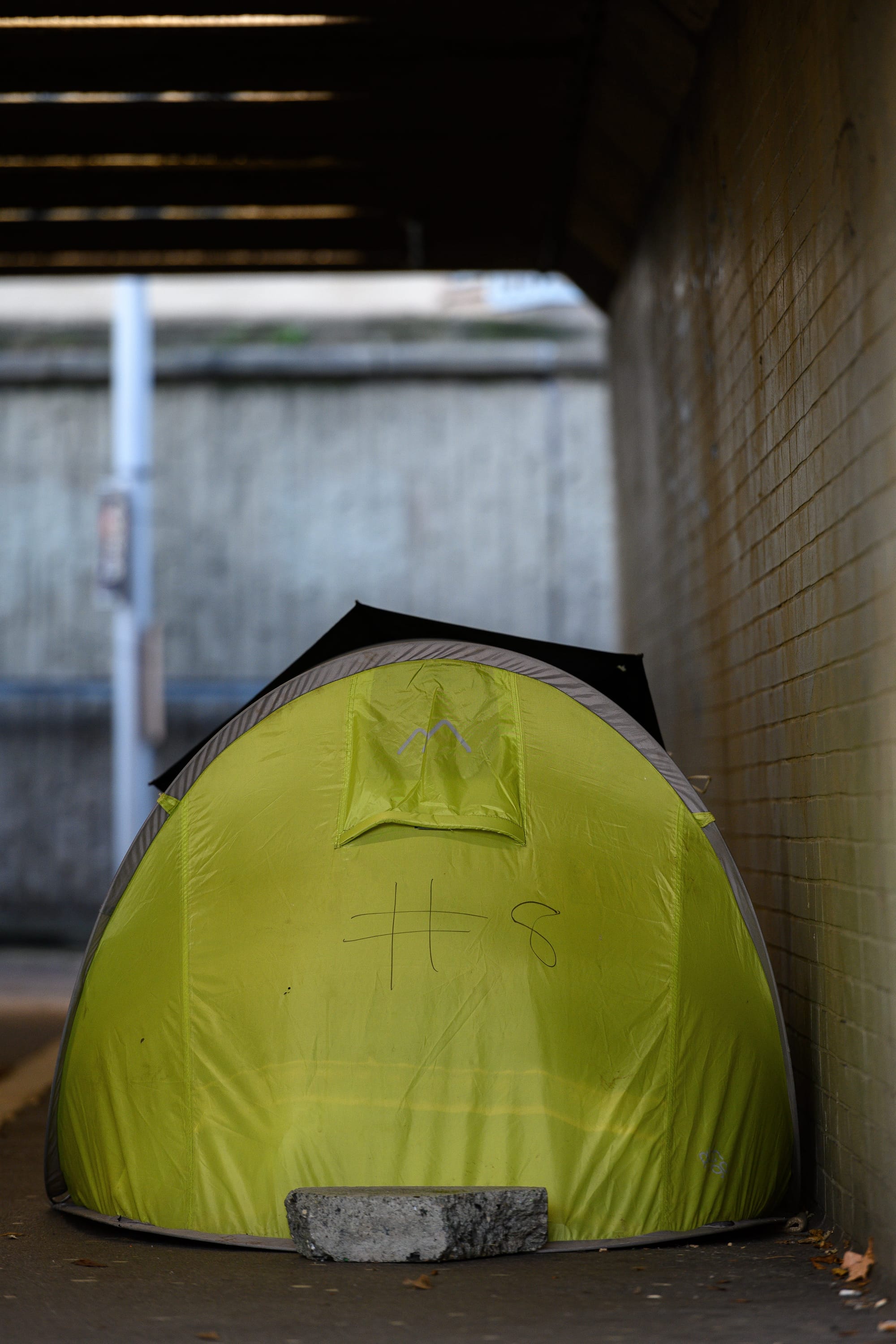
The PSPO is one of the most controversial policies in years. The rationale is clear. Having a city centre which feels unwelcoming, or worse, dangerous, will be fatal for a place that desperately wants to project a positive image to its own residents and the outside world. City centre businesses have been complaining about antisocial behaviour for years, and many who use the area regularly report being bothered, harassed and distressed by people who live on the streets.
But now the PSPO is in force, is it working as was intended? Before the legislation was passed, the council was at pains to say that it would not be used to target homeless people, and where they were found to be in breach of the rules, they would be supported rather than simply moved on. But if Claire’s experience is common, and the authorities responsible for enforcing the order are sending everyone found begging somewhere else, are we in danger of socially cleansing our city? Has the PSPO created a hostile environment for homeless people?
Wanting to assess the impact of the PSPO, I set off on a recce. As I walk up High Street, I catch sight of three police officers on patrol. They see no one on High Street itself before inspecting Cathedral Square and Fargate. In the area of the city most associated with homelessness, rough sleeping and begging, I see no one on the streets at all. With the snooker world championships on, and the sun shining, the centre feels exciting and vibrant. But as I walk around, something nags away at the back of my mind. The people who would normally be sat outside McDonald’s, Sainsbury’s and Tesco haven’t really gone away; they’ve just been moved elsewhere. Out of sight, out of mind. But for how long?
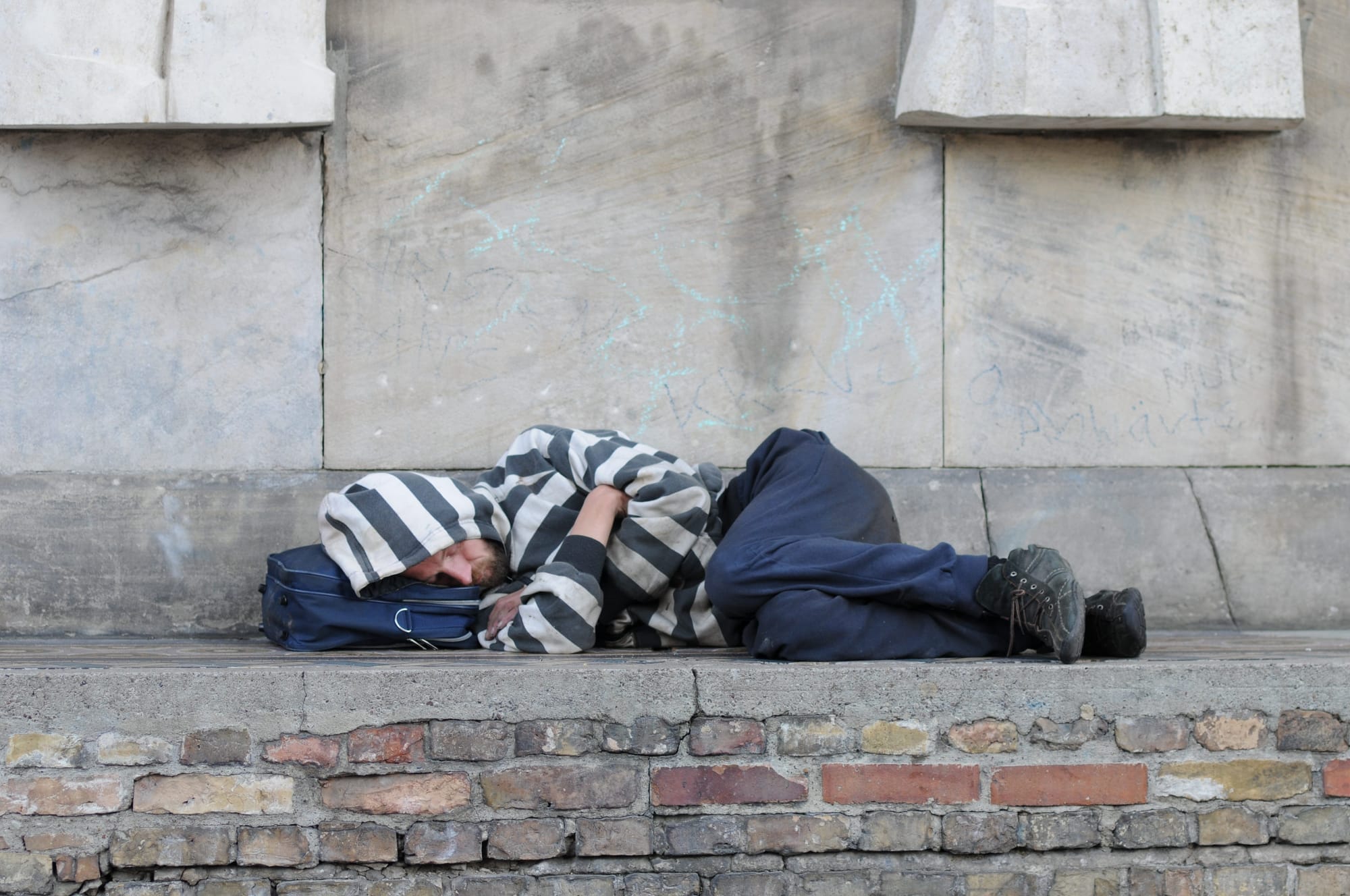
Looping back to Cathedral Square, I see someone sat against the wall of the building. Aaron Hartley tells me he has been homeless “on and off” for 20 years and has just come back to Sheffield after rehab in Scarborough. He understands the PSPO is meant to make the city centre feel like a nicer place for people to be, but he feels the order is being enforced unfairly. “The police are literally picking on us and targeting us,” he says. “All you’re doing is just sweeping it under the carpet and hoping that someone else deals with it.”
Further up West Street, I come across Stephen, 47, walking down the road with a scruffy sleeping bag draped across his shoulders. He says he was moved on from the bottom of The Moor earlier and told that if he returned, he would be arrested. He has just come from Ben’s Centre, one of a handful of services which help vulnerable people in Sheffield, but it has now closed. “Where will you go?” I ask. “I haven't got a clue,” he replies. After walking around the ring road, I bump into him again, sitting in the subway under the Moore Street roundabout, right on the edge of the PSPO area.
The changes have not gone unnoticed. Earlier this week, a Reddit thread on the issue attracted a lot of comments, most of which were very positive. “Can’t believe how nice the city centre is now, I was walking around at 10pm last night and it felt so peaceful,” wrote one person. Another, who said they get the tram to and from Sheffield Cathedral twice a week, said their walk down Fargate was now a much “safer and calmer experience”. And a third said that in the two weeks since the order had been brought in, they were no longer being approached to fund someone’s drug habit, something that was “almost a daily occurrence” beforehand. “SCC [Sheffield City Council] often take flack, and rightly so in many cases, but well played on this one,” they continued.
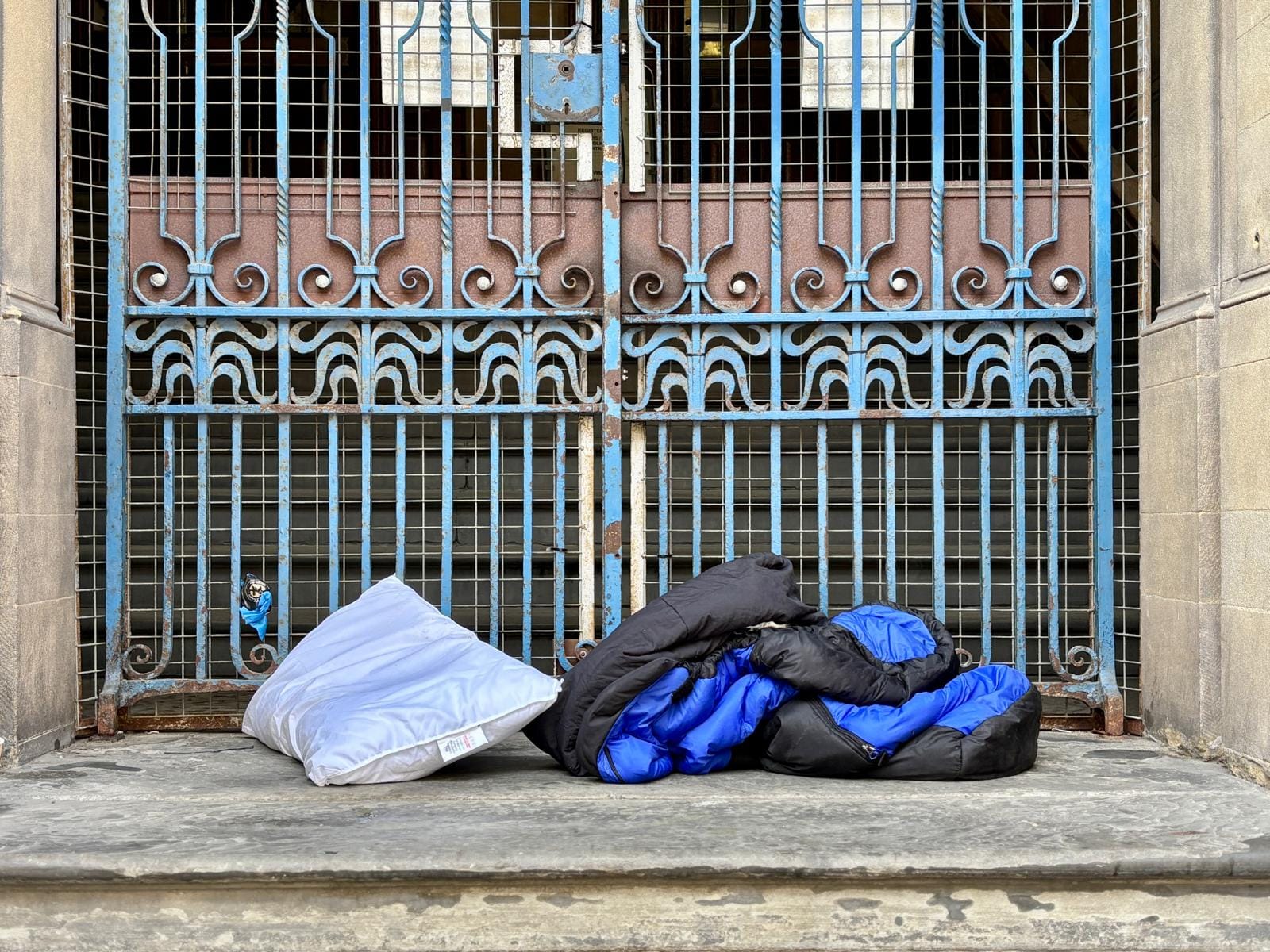
When I asked the Redditors whether any of them were worried vulnerable people were being disproportionately targeted by the order, some did admit to concerns. One said that they had noticed more antisocial behaviour in Hillsborough in the past few weeks and had wondered whether people were being forced out to the suburbs. But these voices were in the minority. Most welcomed the changes or cautioned against automatically assuming that the order was being used to empty the city centre of undesirables. One commenter said he had seen one city centre ambassador (who are empowered to enforce the PSPO, along with police officers) sat down with a beggar, just having a chat. “I’ve never seen that level of empathy from an ‘authority figure’ to our homeless population in any city centre before,” he added.
When people are found to be in breach of the PSPO, they are given an information leaflet showing a map of the area covered by the order as well as a list of places they can get help. These include the Archer Project, Ben’s Centre and Likewise, as well as Sheffield City Council’s housing office at Howden House. One person who works with vulnerable people in Sheffield city centre who spoke to The Tribune on condition of anonymity said that while these are the best places to go for help, none are in a position to offer the kind of service that is needed at present. “All the charities that work with these people are seeing their funding cut, and Howden House just aren't capable of handling the demand,” he says. “There aren’t enough resources to do a good job, so we are just getting the blunt end of it, which is ‘shift on the beggars’.”
The service worker said many of those who work for services that help vulnerable people in Sheffield opposed the PSPO from the beginning. Now it has been in force for two weeks, he said that contrary to the council’s claims, it was clear the PSPO was being used against homeless people and other vulnerable groups in the city centre disproportionately. “The wording was contrived to sound like it wasn’t, but it is completely about targeting them,” he says. Stipulations against placing items of clothing (like, for example, hats) on the floor make it clear who the order is really about, he adds. “Our clients are visible, and now the authorities have a load more laws that they can use as they see fit,” he adds. “They are just people who want to hang around with their friends. They can’t go down the pub as they haven't got access to that kind of luxury.”
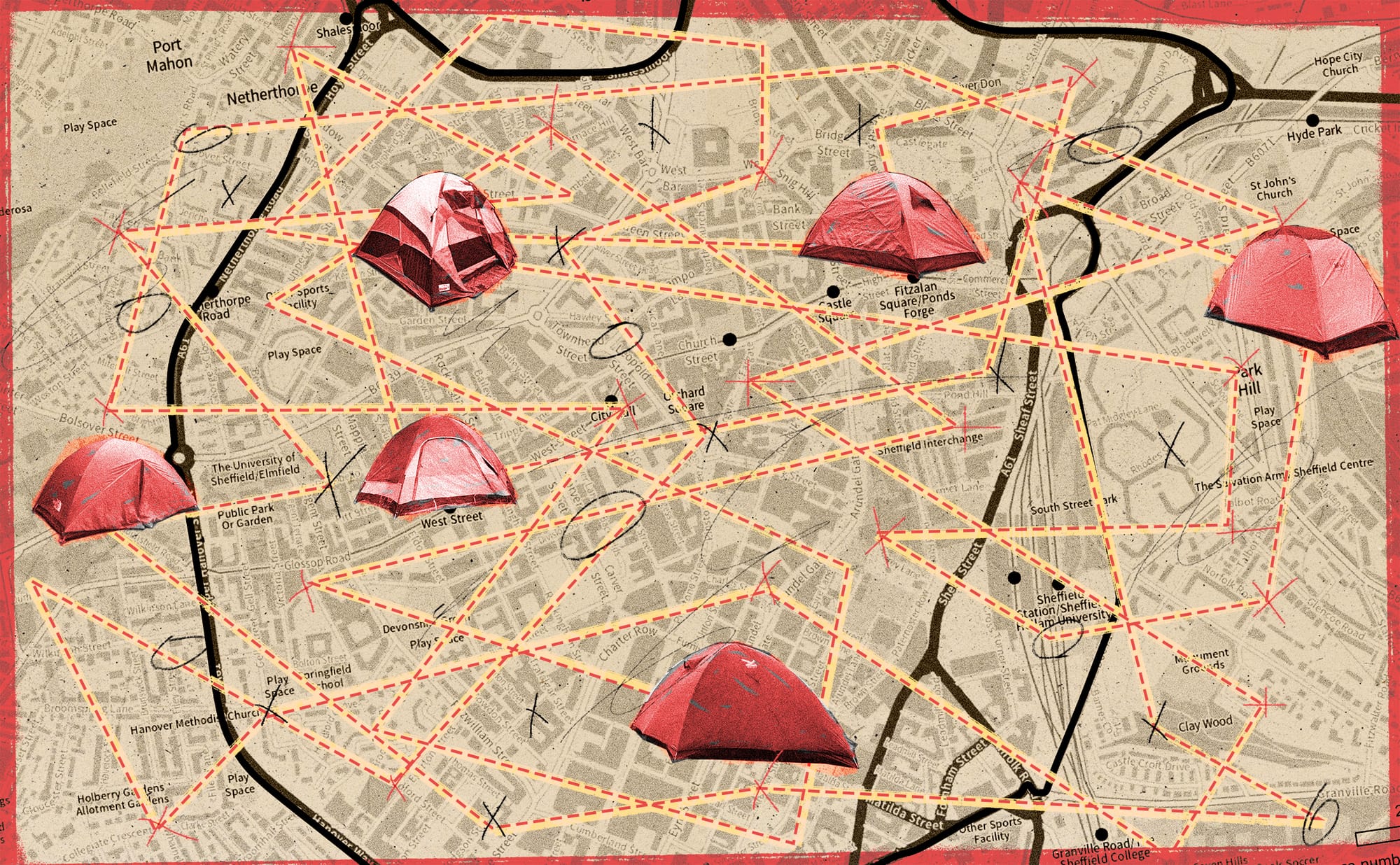
He added that while Sheffield city centre may feel quieter than normal at the moment, without concerted effort to help those who are being displaced by the order, the problem is being shifted rather than solved. “They are just trying to move the problem so it looks like the city centre is a wonderful, vibrant place,” says the service worker. “But it’s like trying to sweep up liquid. They will keep coming back.”
When we asked Sheffield City Council how many times the PSPO had been used, they said it was too soon to share any data. However, Councillor Kurtis Crossland, chair of the communities, parks and leisure committee, insisted that the PSPO would only ever be implemented where behaviour is likely to cause harassment, alarm or distress.
“The purpose of the newly implemented PSPO is to ensure our city centre is safe and inviting for those who live in the area and those visiting,” added Councillor Crossland. “We understand that there are some concerns around the implementation of the PSPO and how it might impact vulnerable people in the city centre. We want to offer our reassurance that our main priority continues to be developing support and referral pathways to help vulnerable individuals, not to persecute them. This will always be our priority.”
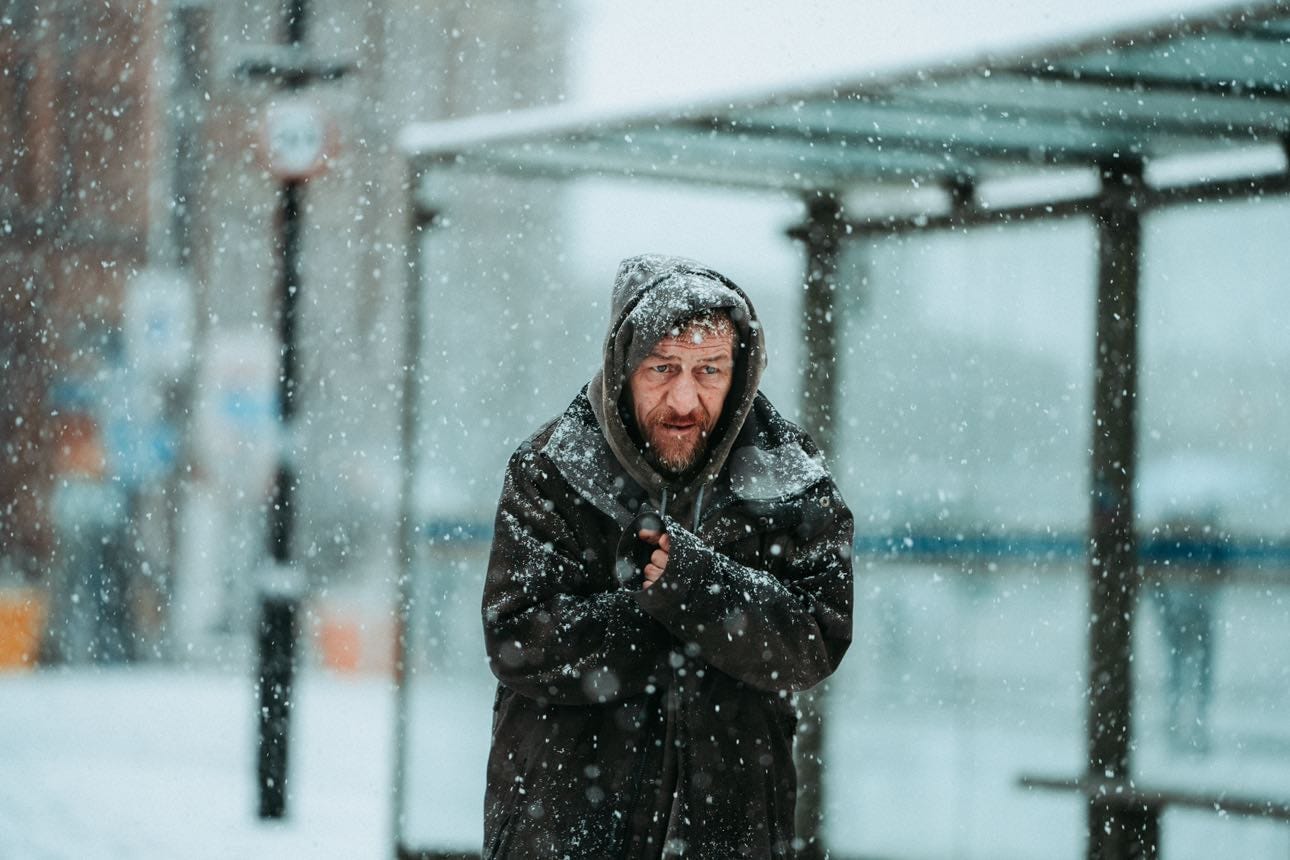
Inspector Andrew Rimmer of the Sheffield city centre neighbourhood policing team said that as well as allowing officers to take action to prevent antisocial behaviour, the PSPO also means they are able to help people who need support. “The new powers introduced by the PSPO are being exercised proportionately by our officers to shift standards of behaviour in the city centre and every breach of the order is reviewed to ensure we are taking the right course of action,” he added.
On Thursday morning, I walk back to work from Park Hill flats down through South Street Park. Stopping at the tram stop, I expect to see Claire, but she’s nowhere to be found. When we spoke, she was under the impression that the back of the station was outside the PSPO zone, but after consulting the map, it’s clear that the amphitheatre behind the train station is also part of the area. It looks like she has been moved on from there as well. Where to, I don’t know.
To find out more about how you can help vulnerable people in Sheffield, visit the Help Us Help website.

Comments
How to comment:
If you are already a member,
click here to sign in
and leave a comment.
If you aren't a member,
sign up here
to be able to leave a comment.
To add your photo, click here to create a profile on Gravatar.


